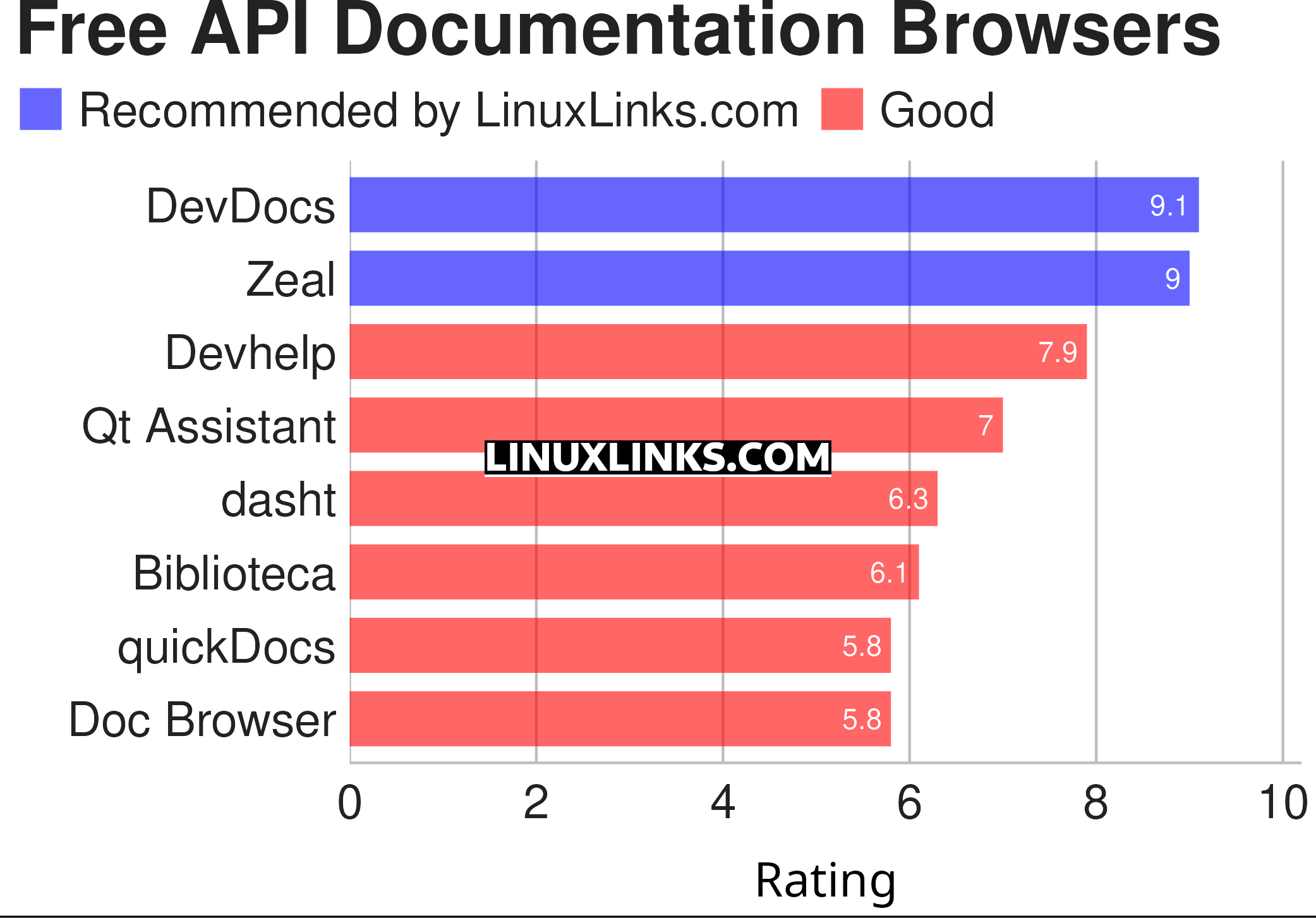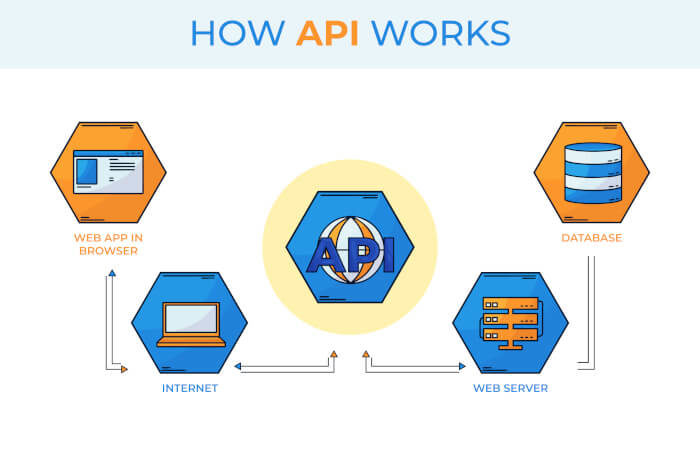Software developers need all the help possible. One useful tool is a documentation browser. In fact, they can sometimes be a life changer.
What makes a good API documentation browser? Things like a huge range of docsets at your fingertips, offline browsing support for HiDPI displays, in-page search tool, good font selection, and smooth scrolling. And extras like fuzzy search functionality help make the process even slicker. The cream of the software makes reading and searching reference documentation fast, easy and enjoyable.
Here’s our verdict captured in one of our legendary ratings chart. We only recommend free and open source software.

We really admire Zeal with its amazing range of 205 different docsets. There are even docsets for non-developers too. We also give a strong recommendation to DevDocs. This software is neither a programming guide nor a search engine. All the content is pulled from third-party sources. Its backbone is metadata; each piece of content is identified by a unique, “obvious” and short string. Tutorials, guides and other content that don’t meet this requirement are outside the scope of the project.
Let’s explore the API documentation browsers at hand. For each application we have compiled its own portal page, a full description with an in-depth analysis of its features, together with links to relevant resources.
| API Documentation Browsers | |
|---|---|
| DevDocs | API documentation browser written in Ruby and JavaScript |
| Zeal | Simple offline documentation browser |
| Devhelp | Developer tool for browsing and searching API documentation |
| Qt Assistant | Tool for viewing on-line documentation in Qt help file format |
| dasht | Search API docs offline in your terminal or browser |
| Biblioteca | Browse and read GNOME documentation |
| quickDocs | Developer docs reader |
| Doc Browser | API documentation browser with support for DevDocs, Dash and Hoogle |
This article has been revamped in line with our recent announcement.
 Read our complete collection of recommended free and open source software. Our curated compilation covers all categories of software. Read our complete collection of recommended free and open source software. Our curated compilation covers all categories of software. Spotted a useful open source Linux program not covered on our site? Please let us know by completing this form. The software collection forms part of our series of informative articles for Linux enthusiasts. There are hundreds of in-depth reviews, open source alternatives to proprietary software from large corporations like Google, Microsoft, Apple, Adobe, IBM, Cisco, Oracle, and Autodesk. There are also fun things to try, hardware, free programming books and tutorials, and much more. |
